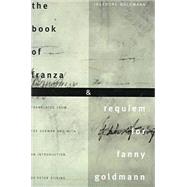Bachmann's allegiance to the twin muses of memory and history, as well as her perception of fascism as not being limited to the context of the war but also existing within the intimate relations of everyday life between husbands and wives, brothers and sisters, psychiatrists and patients' are supremely evident in The Book of Franza. Here, Bachmann follows a woman who escapes from a sanitorium and, after years of silence, sends her br








